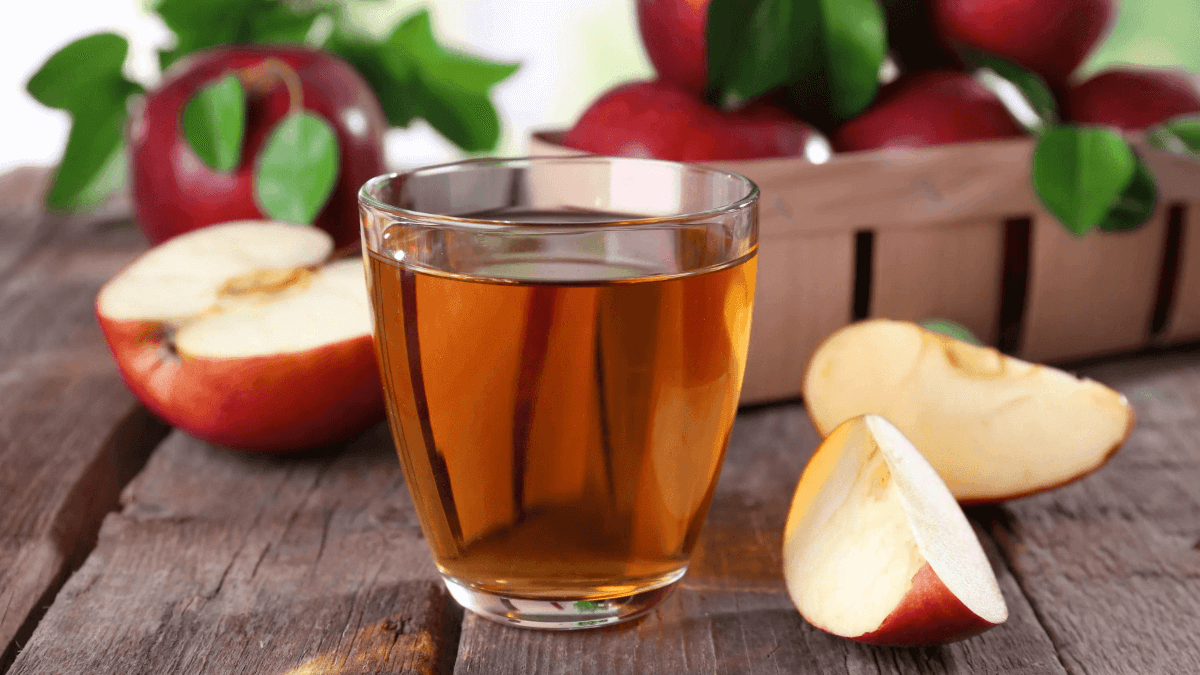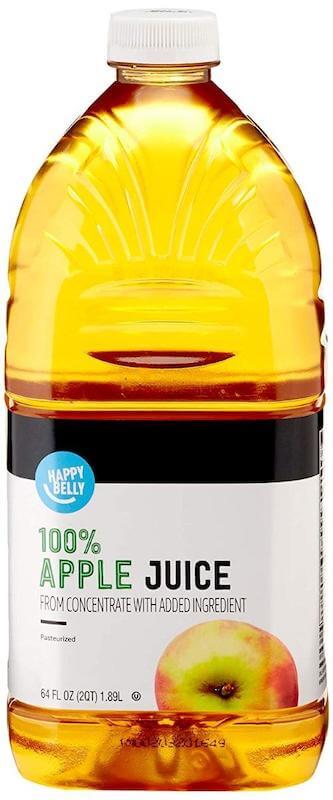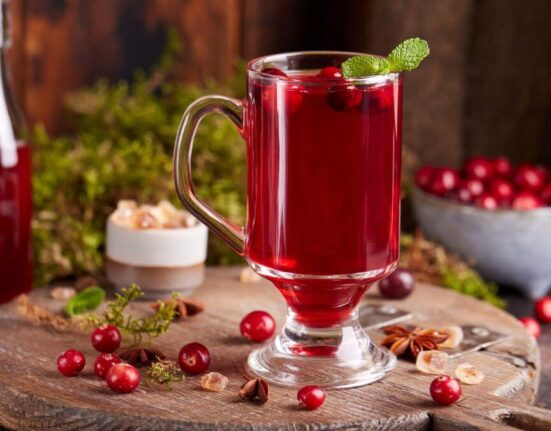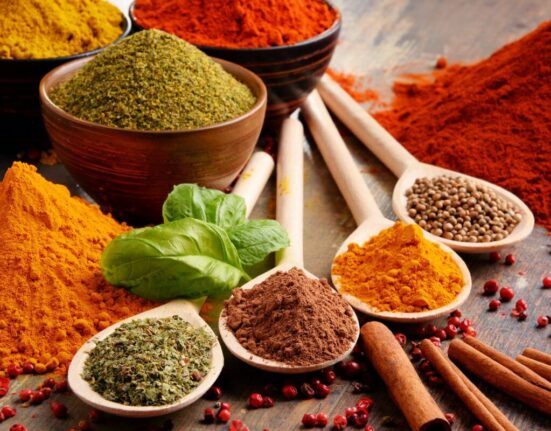With so many choices in the grocery store, it can be hard to know which products are worth your money. When it comes to apple juice, you may be wondering if it’s worth it to buy the organic version.
In this blog post, we’ll explore everything you need to know about organic vs. non-organic apple juice so that you can make an informed decision next time you’re at the store. Keep reading to learn more!
The Difference Between Organic and Non-Organic Apple Juice
The main difference between organic and non-organic apple juice is the way the apples are grown. Organic apples are grown without the use of synthetic pesticides or chemical fertilizers, while non-organic apples are not.
This means that organic apple juice is made from apples that have been grown in a more natural way, without the use of harmful chemicals.
What Chemicals and Pesticides Are Used in Non-Organic Apple Juice?
There are a variety of chemicals and pesticides that can be used on non-organic apple crops. These include fungicides, herbicides, and insecticides.
Some of the most common ones include:
Malathion
A pesticide that’s often used to kill insects, mites, and other pests. It’s been linked to a number of health problems, including cancer and reproductive issues.
Chlorpyrifos
Another pesticide that’s been linked to cancer and reproductive problems. It’s also been shown to damage the brain and nervous system.
DDT
A banned pesticide that’s still found in some levels in non-organic apple juice. It’s been linked to cancer, birth defects, and other health problems.
These chemicals can be harmful to both your health and the environment, which is why many people choose to avoid them by buying organic products instead.

Organic apple juice is made from apples grown without synthetic pesticides and herbicides.
What are the health implications of eating apples treated with conventionally sprayed pesticides and herbicides?
There are a number of health implications to eating apples with conventionally sprayed pesticides and herbicides, as these chemicals are absorbed through the skin and into the bloodstream.
Liver damage
They can damage the liver by disrupting its natural function, as the liver needs to detox the pesticides that have been ingested by eating the apple.
Over time, as the liver is worn out and not able to detoxify as efficiently anymore, chemicals are not completely detoxed out of the body and can get stored deep within the liver.
Eventually the liver cannot continue storing the toxins that it wasn’t able to get to in time to process, and these toxins are able to run freely within the bloodstream. This can eventually results in chronic disease, which can materialize in the form of different cancers and other diseases associated with the liver.
Hormone Disruption
Conventional chemical products can interfere with hormone production in the body, which can have all sorts of health implications.
Hormone disruptors have been linked to a variety of health problems, including obesity, cancer, and reproductive issues. They’re also often found in products we use every day, like in the sprays for conventional produce, and in perfumes and cosmetics.
How do hormone disruptors harm the body?
The estrogenic toxins in these chemicals bind to the estrogen receptors on cells throughout the body. This interaction causes those cells to start producing more estrogen than they should – which can lead to a number of negative consequences.
For example, this overproduction of estrogen can cause weight gain, it can also promote cancer growth by increasing rates of cell growth and division. Additionally, it may interfere with natural hormonal function, leading to fertility problems and other disorders related to femininity or masculinity accumulation.
Is it worth paying more for organic apple juice?
According to the Environmental Working Group (EWG), they have put a list together for produce grown with the highest concentration of synthetic pesticides and herbicides, called The Dirty Dozen.
If you are wondering which produce is worth the money to opt for organic, these are the ones to focus on:
- Strawberries
- Spiniach
- Kale, collard and mustard greens
- Grapes
- Apples
- Nectarines
- Cherries
- Bell and hot peppers
- Peaches
- Pears
- Tomatoes
- Celery
Is it worth paying more for organic apple juice?
Whether or not it’s worth paying more for organic apple juice depends on your personal preferences and priorities. If you’re concerned about getting the least amount of pesticide exposure when buying apple juice, then organic will likely be worth it. If price is your main concern, then you may want to opt for the non-organic version.
Depending on the product, how productive the growing season was, and a few other factors, organic produce can be anywhere from 7% to over 80% more expensive than conventionally grown produce.
Since the prices are always changing, you can compare a store brand organic apple juice’s price here with a non-organic store brand counterpart:
365 Organic Apple Juice by Whole Foods Market
100% Apple Juice from Concentrate (Non-Organic)
Amazon Brand – Happy Belly 100% Apple Juice from Concentrate
We send a clear message with every dollar we spend
It is important to remember that we say a lot with where we choose to spend our food dollars, or any dollars. If enough of us are concerned with the toxicity of pesticides that are sprayed on our produce crops and as a result, we stop buying them, the market will notice and it will eventually have to shift.
This takes time and it takes mindfulness and baby steps as a consumer, but change will be imminent, as the market only wants to deliver what is in demand.
Concluding Thoughts
Now that you know more about organic vs. non-organic apple juice, and the pesticides and chemicals found in conventional produce, you can make an informed decision next time you’re at the store.
Keep in mind that organic apple juice is usually more expensive than its non-organic counterpart, but consider it an investment in health. Invest in your health now, or you could possibly have to pay for sickness later. Choosing organic apple juice is probably a good idea.
More from thewellthieone.com
The links used on thewellthieone.com are affiliate links, which may provide a small commission. This does not increase the price of the goods for the consumer whatsoever. What it does is ensure that useful content like this can continue to be produced. Thank-you for enjoying our content and allowing us to continue to provide more.






